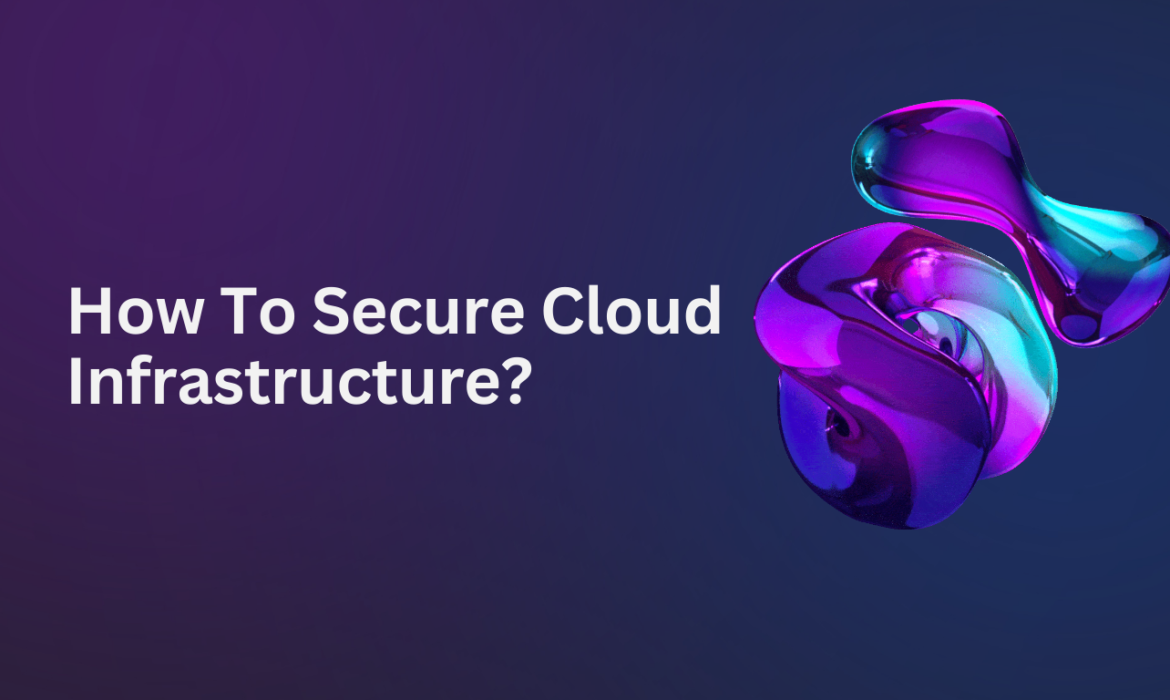Best Practices for Securing Your Cloud Infrastructure
As more and more businesses move to the cloud, security has become a major concern. With the threat of cyber-attacks growing more sophisticated and prevalent, it is crucial to secure your cloud infrastructure. In this blog post, we’ll discuss the best practices for protecting your business data in the cloud.
Understand Your Cloud Infrastructure:
The first step in securing your cloud infrastructure is to understand it. This means knowing what data is stored in the cloud, how it’s stored, who has access to it, and how it’s being used. This information is critical in developing a comprehensive security strategy.
Implement Strong Authentication and Access Controls:
Strong authentication and access controls are essential components of securing your cloud infrastructure. This includes using multi-factor authentication, enforcing strong passwords, and limiting access to sensitive data on a need-to-know basis.
Use Encryption:
Encryption is a fundamental tool for securing your cloud infrastructure. Data encryption ensures that your sensitive data remains secure even if it falls into the wrong hands. Make sure you’re using encryption for data at rest and in transit.
Monitor Your Cloud Infrastructure:
Continuous monitoring of your cloud infrastructure is vital in detecting and responding to security threats. This involves using tools such as intrusion detection systems, firewalls, and security information and event management (SIEM) solutions to monitor unusual activity.
Develop a Disaster Recovery Plan:
No matter how secure your cloud infrastructure is, disasters can happen. Developing a disaster recovery plan is critical in minimizing the impact of an incident. Make sure your disaster recovery plan includes regularly backing up your data and testing the plan to ensure it works.
Keep Your Cloud Infrastructure Up-to-Date:
Keeping your cloud infrastructure up-to-date with the latest patches and updates is vital to maintaining security. Make sure you’re regularly applying security updates to your infrastructure to ensure it’s protected against the latest threats.
Educate Your Employees:
Your employees are your first line of defence when it comes to securing your cloud infrastructure. Make sure you’re educating them on best practices for security, such as using strong passwords, avoiding phishing emails, and reporting suspicious activity.
Conclusion
In conclusion, securing your cloud infrastructure is critical in protecting your business data. By understanding your infrastructure, implementing strong authentication and access controls, using encryption, monitoring your infrastructure, developing a disaster recovery plan, keeping your infrastructure up-to-date, and educating your employees, you can help ensure your cloud infrastructure remains secure. Contact us at Green Edge Computers to know more.
Sophos Firewall: An Introduction to Cybersecurity
Sophos Firewall is a powerful network security device designed to protect your organization against cyber threats. Sophos Firewall offers many features and is suitable for businesses of any size. This blog delves into the features and benefits of Sophos Firewall.
What is Sophos Firewall?
It is a network security device that provides advanced protection against cyber threats. Sophos Firewall, whether hardware or software-based, controls and monitors incoming and outgoing network traffic. Sophos Firewall is designed to offer maximum security, visibility, and control over your network.
Features of Sophos Firewall:
Sophos Firewall offers a wide range of features that make it an ideal choice for businesses of all sizes. Some of the key features of Sophos Firewall include:
- Intrusion Prevention System (IPS): Sophos Firewall comes with an advanced IPS system that helps to detect and prevent network intrusions.
- Application Control: Sophos Firewall controls network access, reducing the risk of cyber attacks.
- Web Filtering: Sophos Firewall’s web filtering capabilities block malicious websites and inappropriate content to prevent user access.
- VPN: Sophos Firewall offers secure remote access through Virtual Private Network (VPN) connections, which enable users to access network resources from anywhere.
- Advanced Threat Protection: Sophos Firewall comes with advanced threat protection capabilities, which help to detect and block malware and other advanced cyber threats.
Benefits of Sophos Firewall:
Sophos Firewall offers a range of benefits that make it an ideal choice for businesses looking to secure their network. Some of the key benefits of Sophos Firewall include:
- Enhanced Security: Sophos Firewall provides advanced security features that help to protect your network against cyber threats.
- Increased Visibility: Sophos Firewall offers enhanced visibility into your network, allowing you to identify potential threats and take proactive measures.
- Improved Control: Sophos Firewall provides control over network access, applications, and web filtering for greater network control.
- Simplified Management: Sophos Firewall provides a centralized management console that makes it easy to manage your network security.
Conclusion
Sophos Firewall is a powerful network security device that offers advanced protection against cyber threats. It provides a range of features and benefits that make it an ideal choice for businesses of all sizes. Choosing Sophos Firewall, you can enhance the security, visibility, and control of your network, and protect your organization against cyber attacks.Contact us at Green Edge.




